Roguery Before (and After) Breakfast
with Art from Sergio Ruzzier
 February 28th, 2017 by jules
February 28th, 2017 by jules
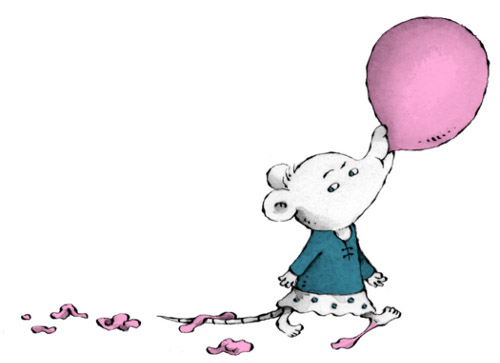
Coming to shelves in early March is the deliciously-titled Tales for the Perfect Child (Atheneum), written by the late Florence Parry Heide and illustrated by Sergio Ruzzier. This is a reissue with Ruzzier’s spot illustrations; these eight stories were originally published in 1985 with illustrations by Victoria Chess. In July, that collection of stories will be followed by nine more stories from the same duo in Fables You Shouldn’t Pay Any Attention To (also from Atheneum).
These stories are vintage Heide — rife with mischief and delightful devilry. They’re a breath of fresh air, especially in this day and age of hyper helicopter parenting. Tales consists of the stories of Ruby, Arthur, Gertrude & Gloria, Harry, Bertha, Harriet, Irving, and Ethel; they are brought to life in Ruzzier’s signature style as ducks, pigs, cats, and the like. There are stories of whining, procrastination, deceit, and more — all tales of children attempting to one-up the adults in their lives by perfecting their misconduct. “Good whiners,” for instance, “make it very hard for anyone to think of anything else,” Heide writes in the story of Harriet, a kitten, who whines so perfectly that she gets precisely what she wants. (Heide notes in the beginning of the story: “Some children hardly ever whine. Can you believe that? So of course they never get to be very good at it.”)
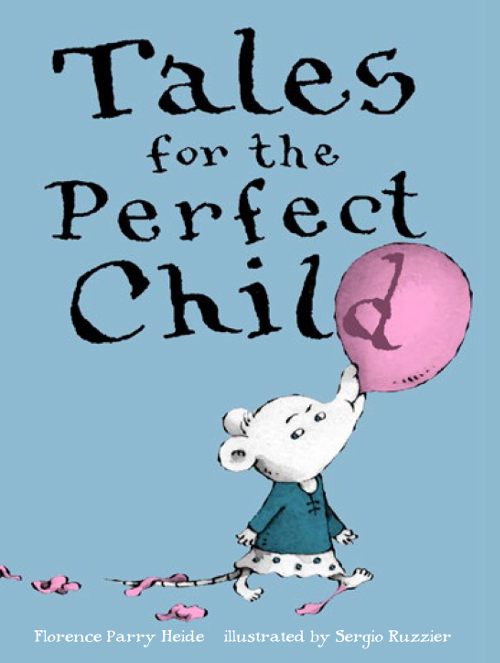
Fables (I’ve read a galley of this one) is even funnier, a set of stories serving as straight-up satire of traditional, moral-laden children’s literature. This 2009 post from Curious Pages, a post about the original version of the stories, summarizes it well:
“Seven fables of animals and children doing horrible things. Celebrates carelessness, selfishness, envy, greed, laziness and lying.”
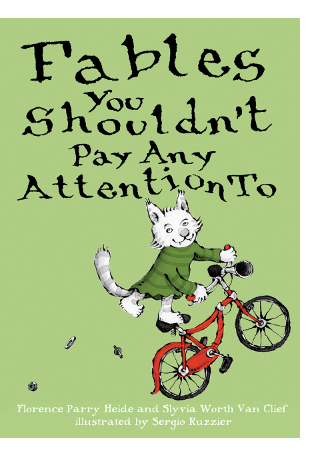 But as easy as it may be to say these stories are merely subverting your more didactic children’s tales, I think there’s a lot more smart stuff going on. Take the story involving two brothers named Caleb and Conrad; in Ruzzier’s world, they’re ducks. (Heide uses some very funny repetition to great effect in this story.) Both boys are incredibly “polite and kind and thoughtful and gracious and truthful.” When Conrad cordially offers to take his brother’s place at one point in the story, going inside to retrieve something from the kitchen, he ends up in trouble with his mother for tracking mud into the house. When she asks who did it, Conrad answers truthfully that he is the culprit. Heide writes: “It pays to be truthful, thought Conrad. Conrad was wrong.” And, delectably, that’s the end of the tale, leaving readers wondering just how much trouble he got into with his parent. Just how abstract of a moral principle is honesty anyway? It’s food-for-thought from Heide, though mostly she’s just trying to make us laugh (and she succeeds) at the notion of Conrad’s missed opportunity for finger-pointing.
But as easy as it may be to say these stories are merely subverting your more didactic children’s tales, I think there’s a lot more smart stuff going on. Take the story involving two brothers named Caleb and Conrad; in Ruzzier’s world, they’re ducks. (Heide uses some very funny repetition to great effect in this story.) Both boys are incredibly “polite and kind and thoughtful and gracious and truthful.” When Conrad cordially offers to take his brother’s place at one point in the story, going inside to retrieve something from the kitchen, he ends up in trouble with his mother for tracking mud into the house. When she asks who did it, Conrad answers truthfully that he is the culprit. Heide writes: “It pays to be truthful, thought Conrad. Conrad was wrong.” And, delectably, that’s the end of the tale, leaving readers wondering just how much trouble he got into with his parent. Just how abstract of a moral principle is honesty anyway? It’s food-for-thought from Heide, though mostly she’s just trying to make us laugh (and she succeeds) at the notion of Conrad’s missed opportunity for finger-pointing.
Ruzzier’s illustrations strike just the right note. Dry-humored and mischievous, they capture the fun in subverting adult expectations. Some of these are laugh-outloud funny. When Harriet’s mother (remember: Harriet is our expert whiner), always striving to convince Harriet to cease her moaning, offers up a new coloring book with the goal of distracting her daughter, we see Harriet at her table (with her best martyr face), dramatically throwing it aside. Ruzzier places the pie Harriet desperately wants so far at the end of the very long table, accentuating Harriet’s woe with pathos. Children will relate.
Though he doesn’t share that illustration below (you’ll have to find a copy of the book, come March), Ruzzier shares some other illustrations here today—and even some preliminary images—below. I thank him for sharing.
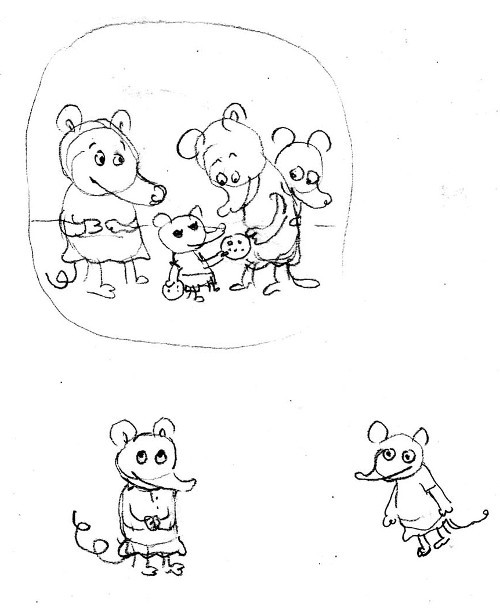
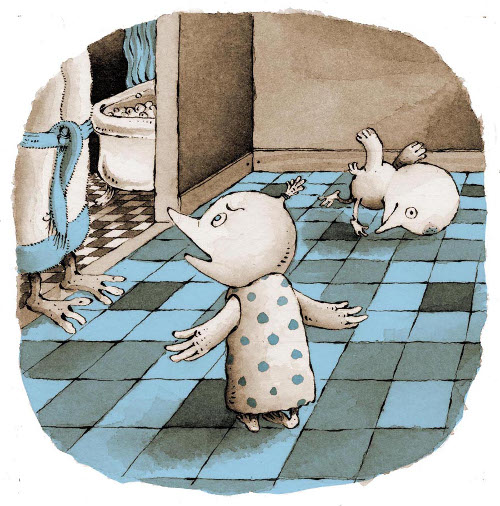
But Ruby’s mother said, ‘You have to watch Clyde. …'”
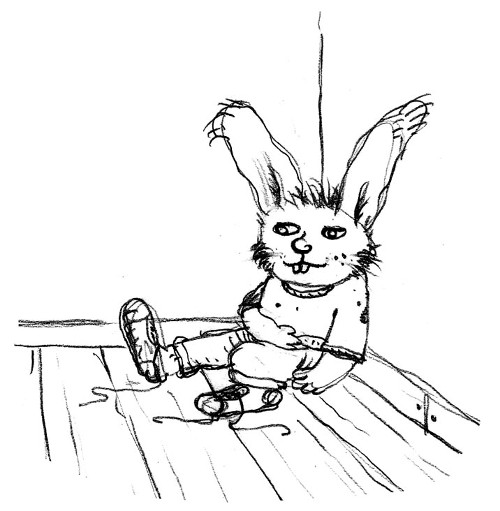
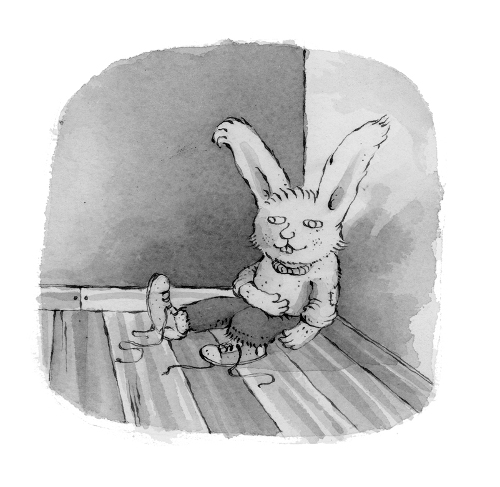
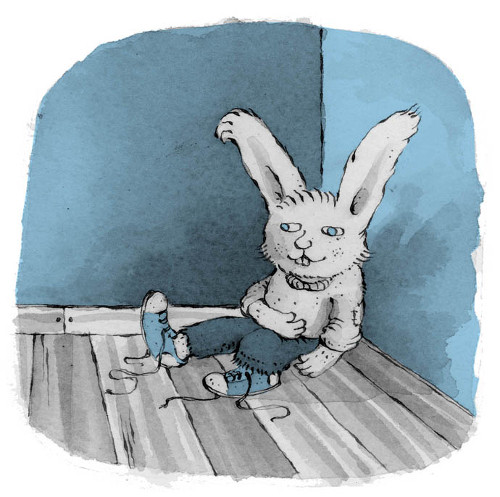
and his old comfortable sneakers.
He did not like to get dressed up. …”
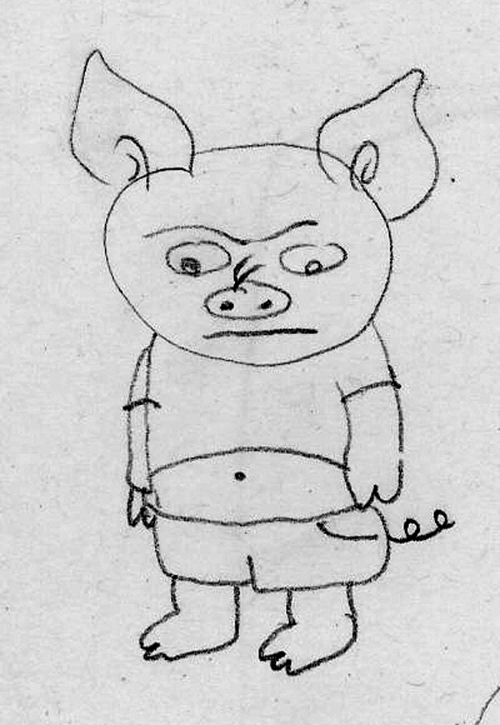
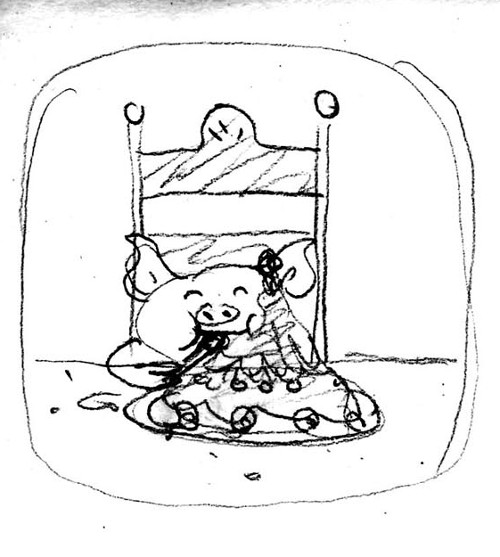
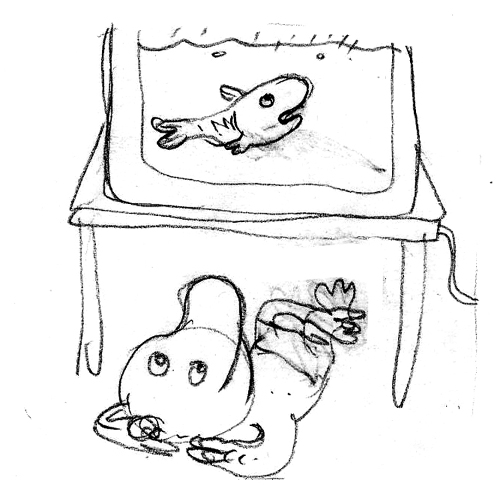
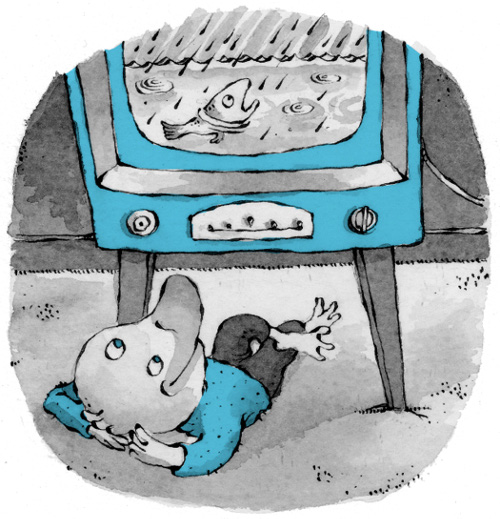
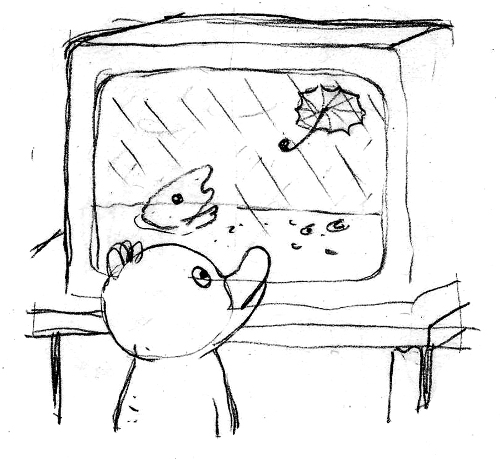
‘It’s a lovely, cool, sunshiny day,’ said Bertha’s mother.
‘Stop watching television and go outside and play. …'”
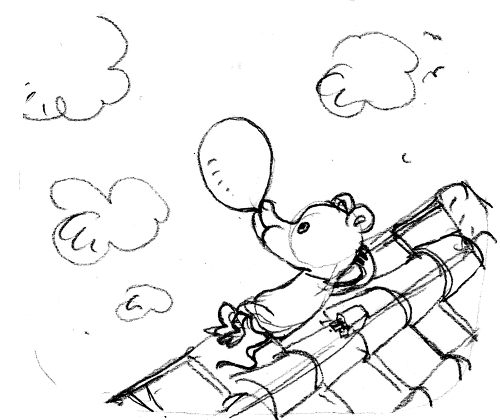
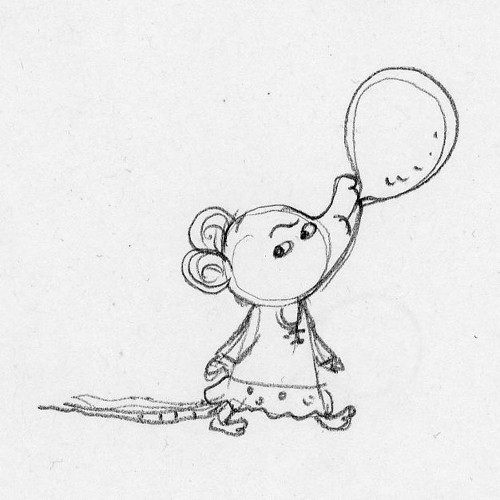
Shouldn’t Pay Any Attention To:
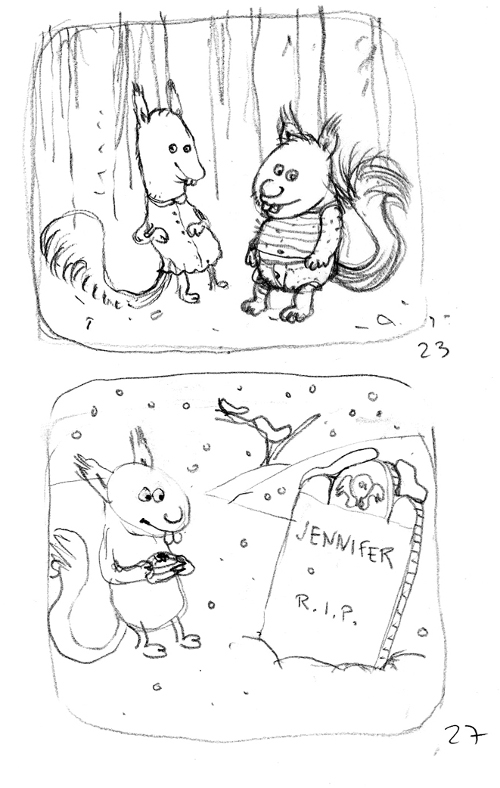
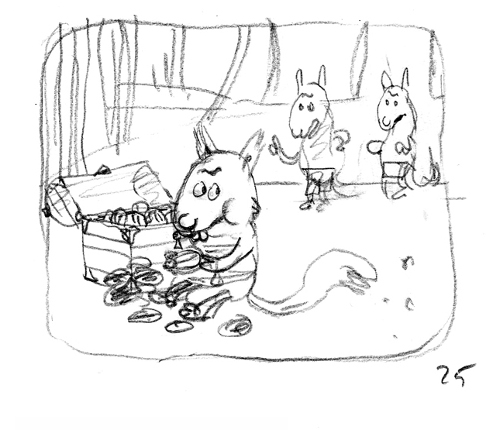
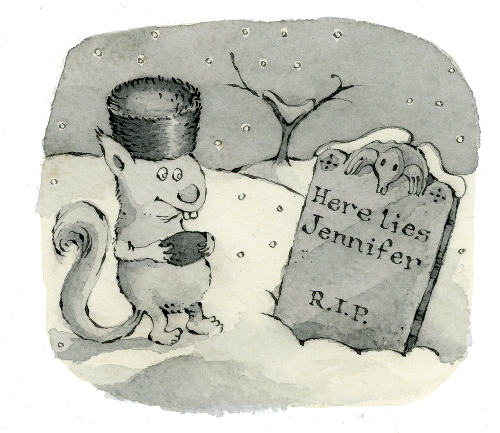
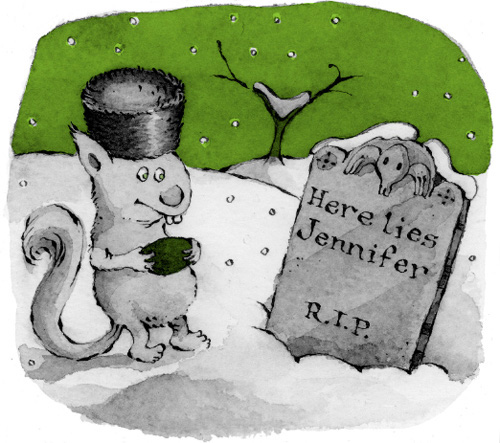
said Cyril. ‘It pays.'”
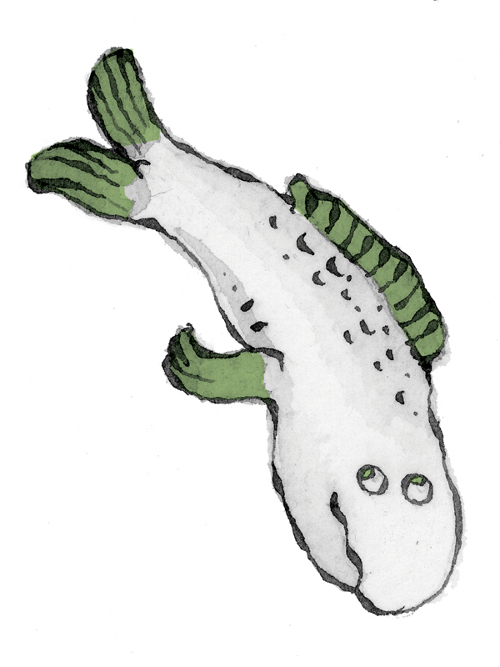
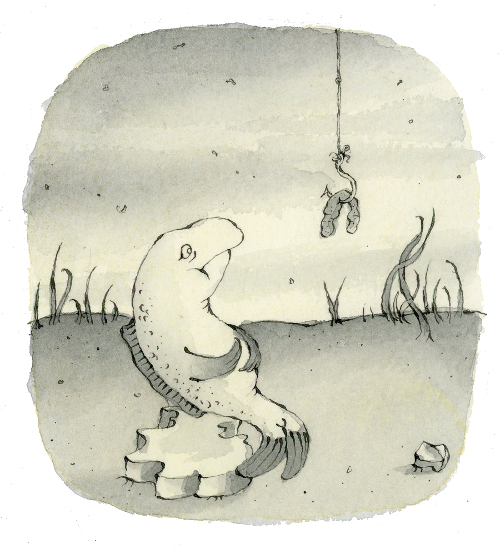
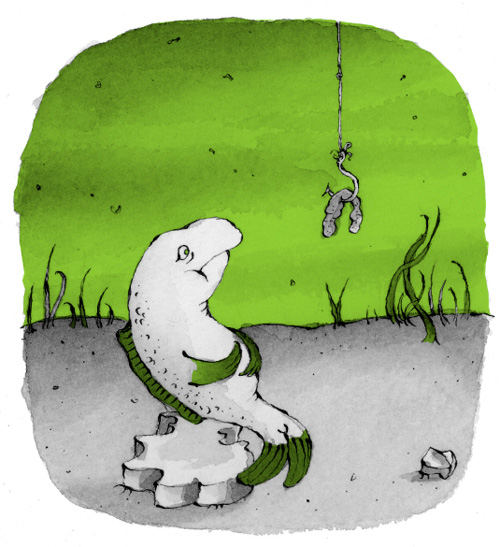
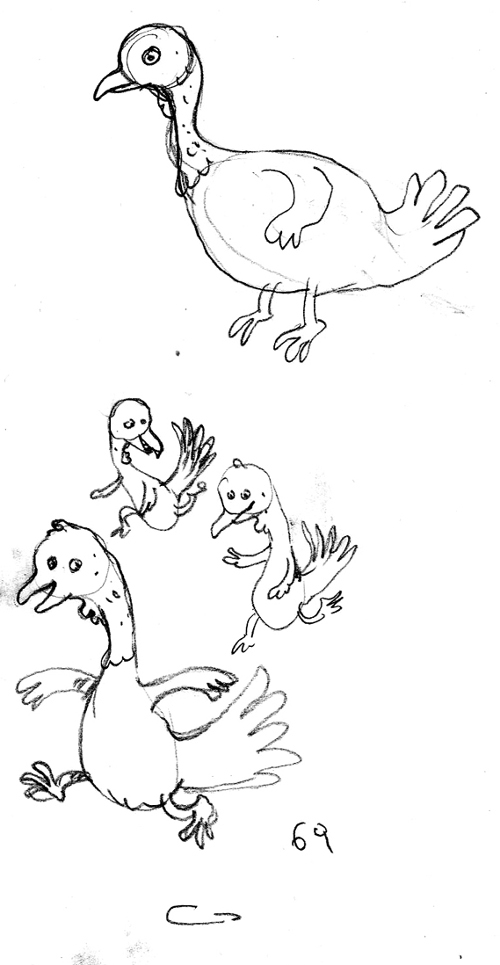
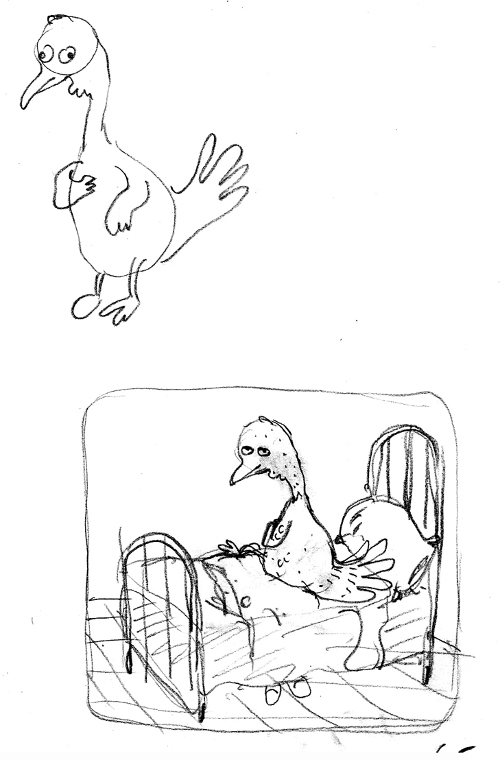
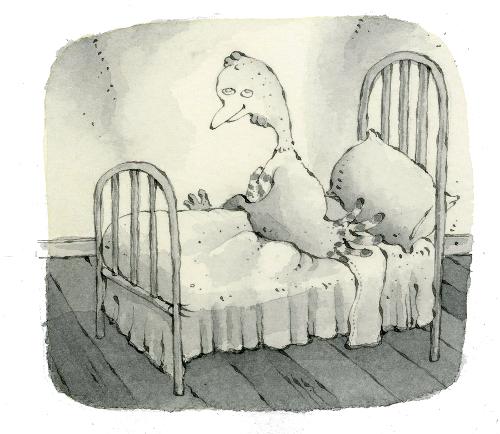
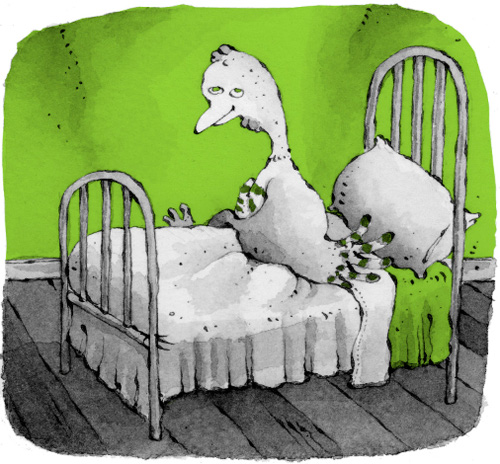
Chester was the laziest turkey you ever heard of. …”
All images used by permission of Sergio Ruzzier, 2017.
